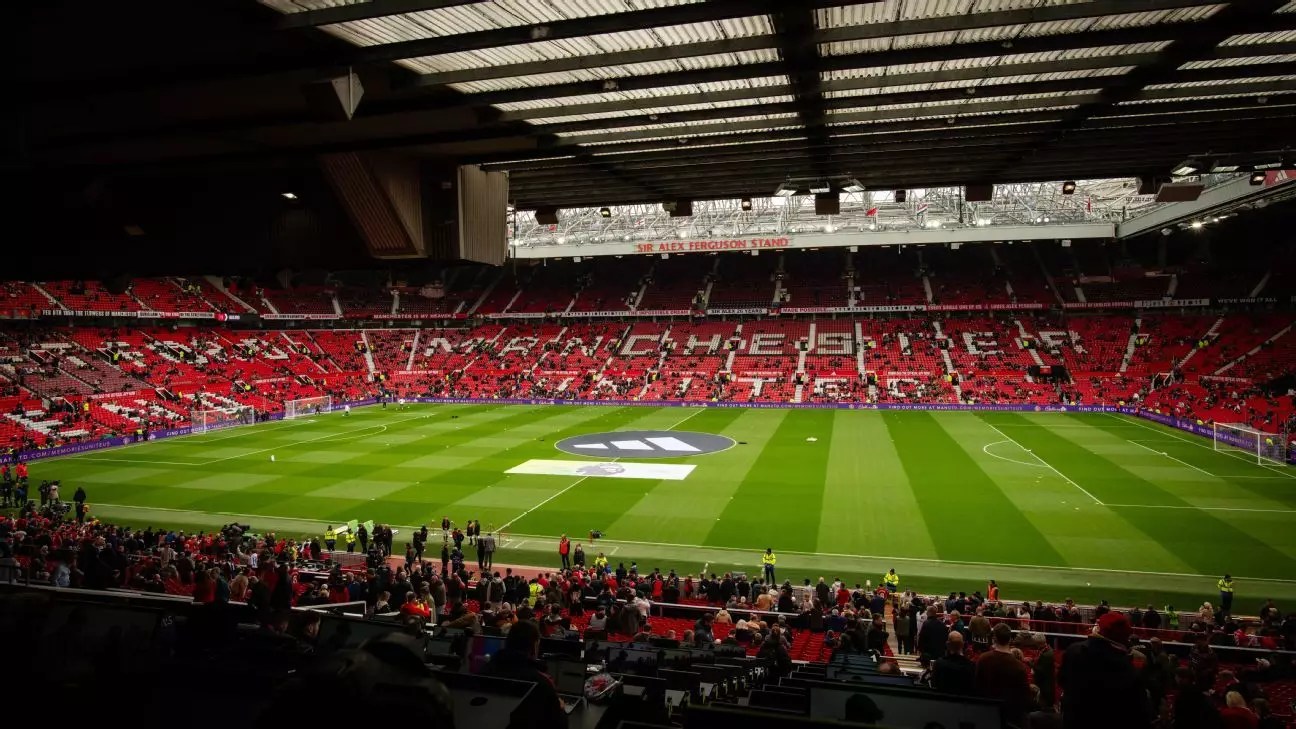Manchester United, one of football’s most prestigious clubs, is at a crossroads regarding the fate of its home ground, Old Trafford. Recent surveys conducted among fans indicate a growing sentiment favoring the construction of a new stadium over the redevelopment of the historic venue. As the club contemplates options that could require investments upwards of £2 billion ($2.6 billion), the implications of these choices on fan experience and club identity are profound.
In a survey that garnered attention from approximately 50,000 supporters, the results highlight a significant trend: 52% of respondents expressed support for building a new stadium, while only 31% preferred to improve the existing Old Trafford. The remaining 17% of fans remain undecided, possibly reflecting concerns or a lack of information about both proposals. The data suggests that supporters are yearning for a fresh start while also valuing their connection to the club’s storied past. This divide invites deeper exploration into what “home” means for the fan base and how a new venue might echo the legacy of its predecessor.
Under the guidance of co-owner Sir Jim Ratcliffe, a task force encompassing notable figures such as Gary Neville and Greater Manchester Mayor Andy Burnham has been assembled to deliberate on this pressing issue. Their task culminates in a forthcoming report expected by year’s end, marking it as a pivotal moment for club leadership. Ratcliffe’s inclination towards a new stadium signals his recognition of the need to adapt and modernize, yet the fluidity of this decision underscores the complexity involved in balancing tradition with innovation.
Rick McGagh, Manchester United’s Director of Fan Engagement, emphasized the importance of understanding fan sentiments, stating, “We know how important our home is to fans, and we need to listen to them.” This statement reinforces the concept that a successful stadium experience must resonate with a diverse audience, including differences in perspectives from season ticket holders, official members, and fans of varying ages. Such engagement creates a rich tapestry of insights, ensuring that future developments align with fan expectations and desires.
In this pivotal moment for Manchester United, the potential to either reinvent Old Trafford or embark on the creation of a new stadium presents both opportunities and challenges. As the fan base leans toward a new venue, club management must navigate the duality of maintaining storied traditions while pushing for innovative advancements. Ultimately, the successful outcome of this endeavor will hinge on a collaborative and transparent approach between club leadership and its most vital stakeholders: the fans. The path ahead may be uncharted, but with their voices at the forefront, Manchester United is poised to embrace a future that encapsulates the spirit of its legacy while welcoming the promise of modernity.


Leave a Reply